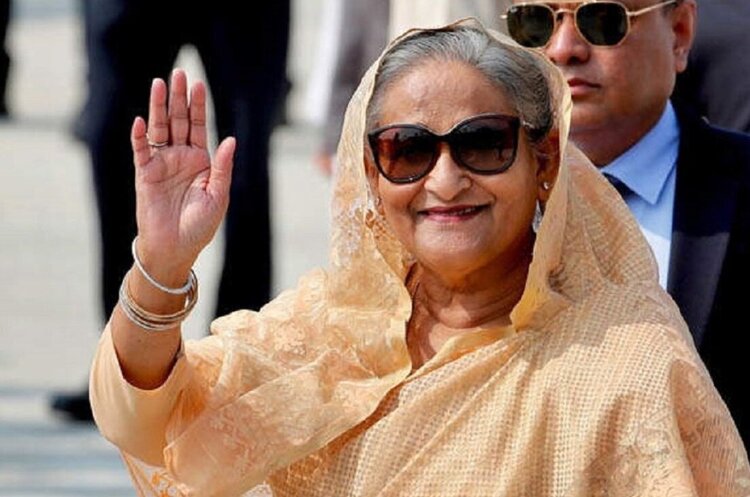Bangladeshi Prime Minister resigns and flees the country amid large-scale protests
Her residence was seized by protesters, and the army chief announced the formation of an interim government

Bangladeshi Prime Minister Sheikh Hasina, who fled the country amid massive protests, has sought asylum in the United Kingdom. This was reported by The Hindu, citing informed sources. Sheikh Hasina and her sister are going to fly to London in the near future.
NDTV reports that the Prime Minister of Bangladesh has resigned at the request of the army command, which accused her of failing to stop the ongoing unrest in the country.
Army Commander Waqer-uz-Zaman made a televised address in which he promised that an interim government would be formed.
"I met with the opposition leaders and we decided to form an interim government to run the country. I take full responsibility and promise to protect your lives and property. Your demands will be met. Please stop the violence," Waker-Uz-Zaman said.
Sheikh Hasina managed to leave her residence before the crowd broke through the police fences. Protesters also entered the building of the National Parliament.
It's a victory over the tyranny of dictatorship . Students of Bangladesh have shown the whole world what students are capable of.
– salwa (30**💙💙❀ ذاتَ الخِمار(وَنَرَاهُ قَرِيبًا (@salwa201188) August 5, 2024
Salute to the brave Students of Bangladesh..🇧🇩#BangladeshProtests #BangladeshArmy #BangladeshBleeding #SheikhHasina #Bangladeshstudentprotest pic.twitter.com/J3uB1haesb
In the first half of July, student rallies began in Bangladesh demanding the abolition of the quota system used in the distribution of government jobs.
The authorities tried to stop the demonstrations: they allowed the police to use tear gas and shoot rubber bullets into the crowd. A curfew was imposed and the internet was cut off, but these measures only led to an expansion of the protest.
Students' discontent across the country eventually spilled over into clashes with police. Although the country's Supreme Court cancelled most of the quotas on 21 July, the protests did not subside.
The Students Against Discrimination movement, one of the organisers of the protests, called on residents not to pay taxes or utility bills, and on factory and public transport workers not to go to work.
The peaceful rallies escalated into pogroms and clashes, in which more than 300 people died.
Local media estimated that hundreds of thousands of people took part in the protests.
On Monday, 5 August, despite a curfew, crowds marched through the centre of the capital Dhaka to protest the military's killing of dozens of people over the weekend. The troops eventually retreated, and Sheikh Hasina lost power after 15 years as prime minister.
According to army commander Waqer-uz-Zaman, the perpetrators of all the killings and pogroms will be punished.
If you have read this article to the end, we hope that means it was useful for you.
We work to ensure that our journalistic and analytical work is of high quality, and we strive to perform it as competently as possible. This also requires financial independence. Support us for only UAH 196 per month.
Become a Mind subscriber for just USD 5 per month and support the development of independent business journalism!
You can unsubscribe at any time in your LIQPAY account or by sending us an email: [email protected]



